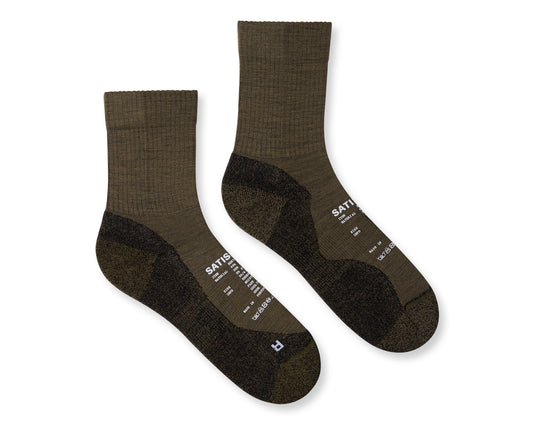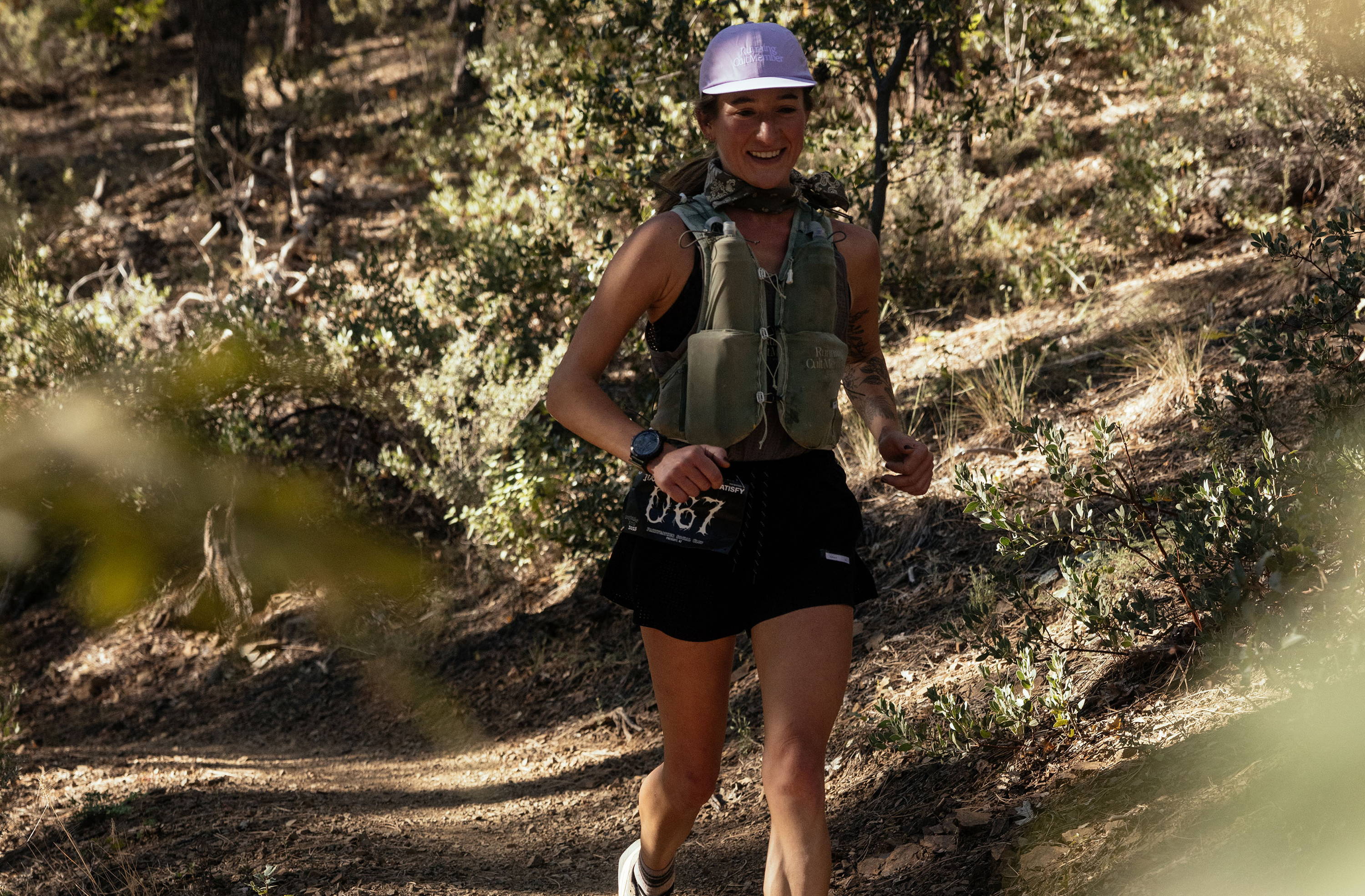
No two ways about it, Satisfy’s newest pro athlete, Sarah Ostaszewski, has had a terrific 2023. In July, she won Colorado’s Ouray 100 ultra, an arduous 102.1-mile mountain race that most of us would happily hang our shoes on for the rest of our running careers. But believe it or not, that was her second major victory in as many months: in May, she won the Cocodona 250. That’s 150 more than the race you were going to rest your laurels on, you lazy bum. 250 miles. That’s more than 400 km, which, for any small lizards reading this, works out to 15840000 inches. She won a race that goes for 15840000 inches. That is bananas.
This being POSSESSED magazine’s Extreme Distance issue, and Sarah being someone who has conquered distances more extreme than songs by the band Extreme, naturally, we had to call her up and ask how she did it, why she did it, and when will she do it again.
Official race photos by Anastasia Wilde, Howie Stern, and Scott Rokis
Hey Sarah!
Hey!
So, this is for our Extreme Distance issue. It’s an interview.
Okay, cool.
You won Cocodona this year, so I really want to pick your brains about that. I think for a lot of people, me included, it’s completely inconceivable that anybody would run that far. I mean, the Cocodona 250 is, of course, 250 miles long, which is more than 400 km (402.336km), which works out to 9.5 consecutive marathons.
Yeah [laughs], it’s a lot.
Okay, so tell me how you did it. It’s a one-question interview. Go.
[Laughter] Well, it took me three years to do it the way I wanted. I’ve done that race all three years of its existence.
Tell me about the first one.
The first year, 2021, I was just curious about the distance; it was totally new, and I hadn’t done anything like it before. My sister and I used to like running the 24-hour timed events, so we’ve done races where it’s a mile looped course, and we’ve gone over a hundred miles there, but that was my only experience. I’d done a handful of 100 events and then 24-hour events, so I kinda just jumped into Cocodona.
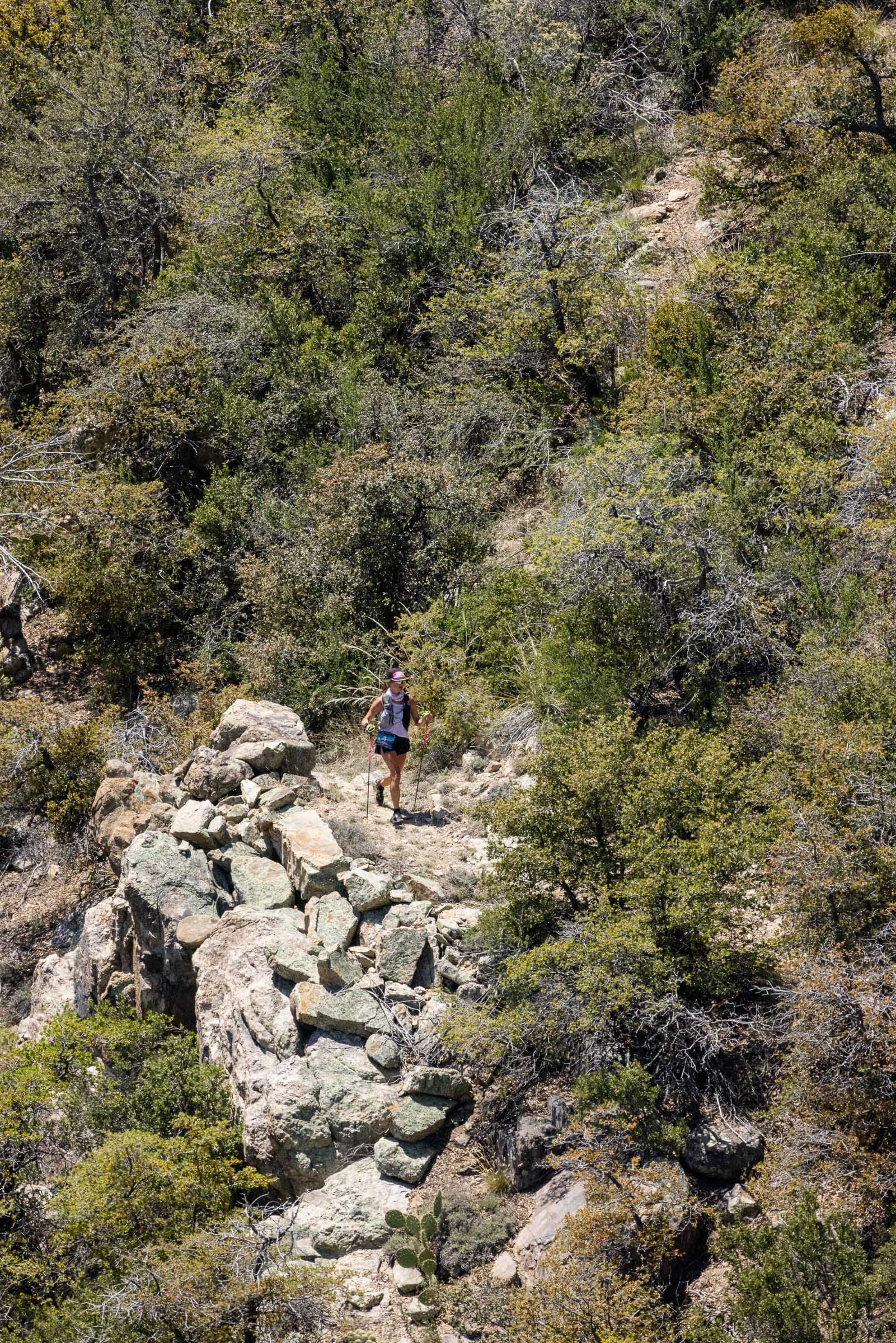
'I think Cocondona and the crazy distance seemed like a new thing to try, totally out of my element, and also a way for me to take some control over what else was going on in the world.'
Crazy.
Yeah. I forget when Aravaipa announced it, but then the pandemic happened and everything shut down. I think Cocondona and the crazy distance seemed like a new thing to try, totally out of my element, and also a way for me to take some control over what else was going on in the world.
That’s a hell of a way to take control of things.
[Laughter] Yeah, I know, and there were a lot of unknowns for a race that long, but I saw it as this perfect opportunity, like, all I have to think about is running one step at a time for 250 miles.
Yeah?
And that sounded great!
Sounds absolutely dreadful to me.
[Laughter]
How long did it take you?
The first year, I wasn’t keeping track of time. I had my sister out pacing; she essentially ran half the race with me, and our mom actually came out to drive the crew vehicle. At the time, I was living in Portland, so we flew into Arizona, rented a crew vehicle, and it was just the three of us. But it took me about 99.5 hours, so under 100 hours, which sounds pretty cool.
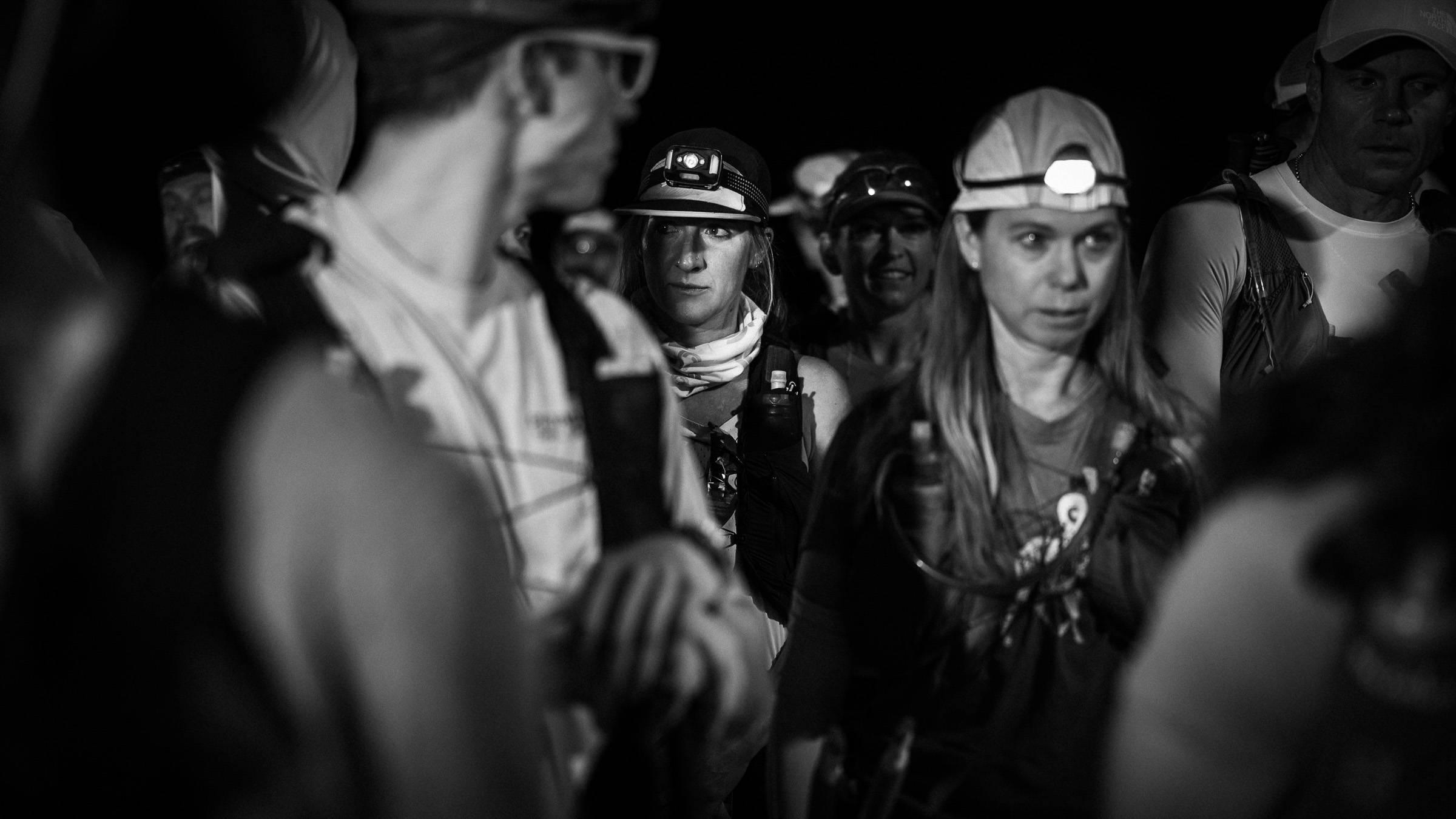
'I think you’re exactly right: people who don’t run don’t really have a sense of what it takes and how it feels to even run a marathon, so 250 miles—'
So, just a little over four days of running. Jesus. What about 2022, your second Cocodona?
Between year one and year two, I moved to Flagstaff, so I got familiar with the course. It was a reroute because of fire, so they moved the start from Black Canyon City to Prescott, and that took away a bunch of climbing; it took away the hardest part of the course, the longest section without crew or aid stations, so... Yeah, different course, and I took off a lot of time. I’d have to check, but I want to say it was 84 or 85 hours.
Okay, and this year’s Cocodona 250—which you won—what was your time?
72 hours? Let me double-check.
Fuuuuuuuck. So, that’s you running as fast as you can manage for three days.
Yeah, three days, three nights, and then I finished right around sunrise.
Sarah, that is absolutely... That is the most insane thing. I can’t... I feel like people who don’t run are going to go, ‘Oh, wow, that’s really crazy,’ but if you’re a runner... I mean, I’ve done a marathon, and for me, that was easily the most strenuous and difficult thing I’ve ever done in my life—but it was all over in three hours, not three goddamn days!
[Laughter] I think you’re exactly right: people who don’t run don’t really have a sense of what it takes and how it feels to even run a marathon, so 250 miles—
It’s unfathomable.
Yeah, but if you run, and you really think about it, it’s like, ‘Wow, that’s really a lot of hours.’
Did you think about that before signing up?
No, I didn’t think about it too much. I just thought, 'I’m gonna sign up and crawl to the finish line if that’s what it takes.'
I can’t sleep the night before a race, even if it’s just a half marathon. How did you sleep before Cocodona?
I just try to stay on a consistent sleep schedule in the months leading up to a multi-day thing like that. I don’t think you can bank sleep, so I just try to get my regular seven to eight hours. But the night before the race, I don’t sleep that well.
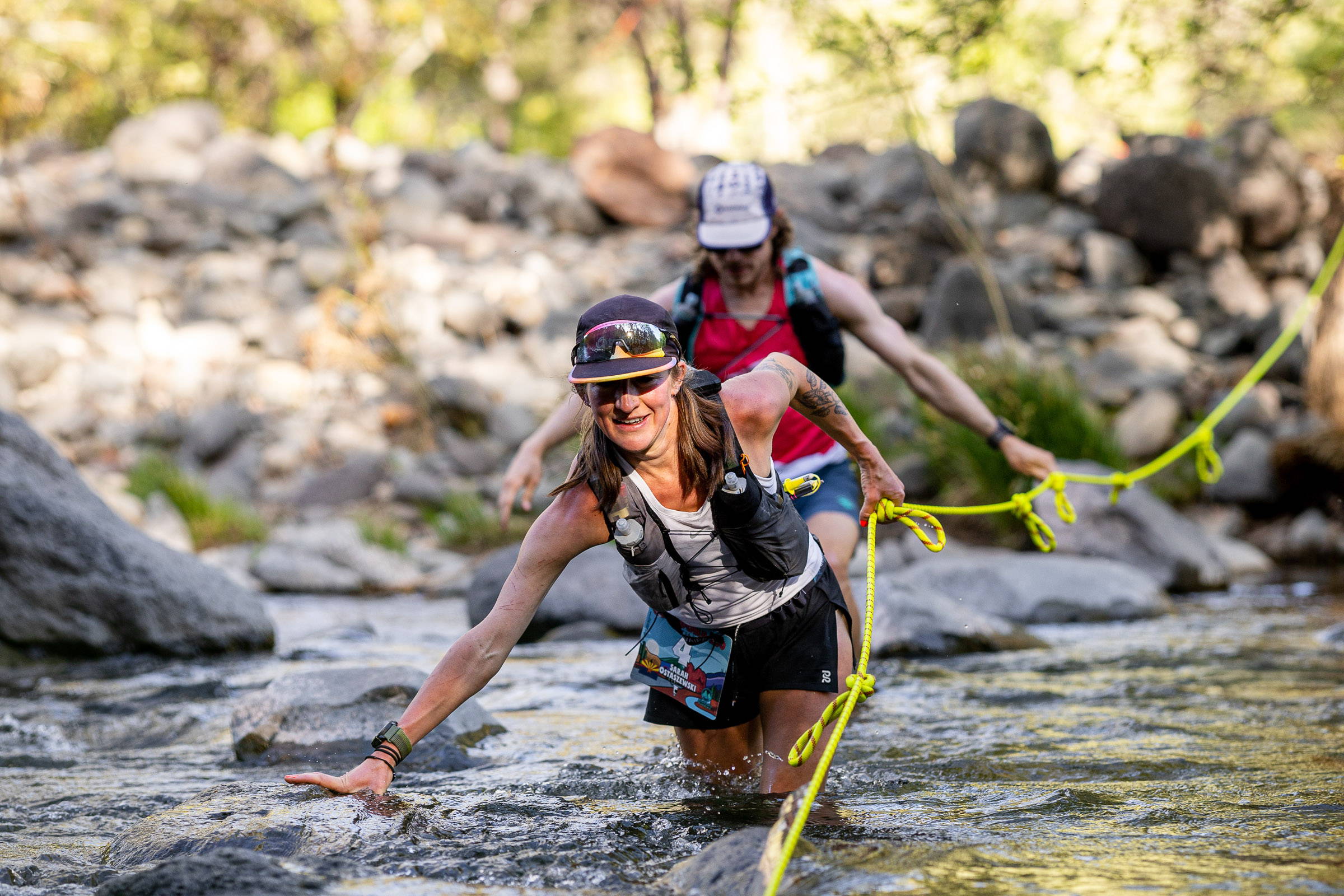
'The nights, for me, are pretty tricky. By the third night, though, it’s race time.'
How do you structure your training? I imagine in must be heavily detailed and intense—wait! Do you have a regular job?
Yeah, I’m on a digital product design team related to activity, like, fitness apps. But I work remotely, which makes my hours pretty flexible, and living in Flagstaff, I can literally be at my front door, run a mile, and then be at a trail head.
Nice.
Yeah, so that saves a ton of time. I’ve been doing trail ultras since 2014, so I feel like I had this huge base with trail running and ultra-running that I drew upon to feel confident going into Cocodona. But I wouldn’t say my training is super-intense; I haven’t done a lot of speed work, but I did a lot of hiking leading into Cocodona. I mean, it’s just time on feet.
You know how they say that the second half of a marathon begins at 30km or whatever that is in miles?
Yeah?
What’s the second half of a 250-mile race? Like, at what point do you go, ‘Oh god. This is still going. I don’t know if I can keep doing it. Please, God, make it end’?
[Laughter] I think that’s been different for me every year. Like, this year, I felt better on certain sections where I could push the effort a bit versus previous years. I remember one section this year where I was like, ‘I’m gonna run this because last year I felt like garbage and I had to hike it.’ But I think the first night is always hard, like, when you get to 24 hours in, just because you know your sleep schedule is off and you're tired, and you have to accept that you’re going to be out there for a long time, and your energy levels are going to be weird. So, around 24 to 25 hours in, I’ve gotten pretty sleepy and took naps.
What’s it like running through the night on a long race like this?
The nights, for me, are pretty tricky. By the third night, though, it’s race time. For Cocodona, that was Fort Tuthill aid station, where you have, I think, 40 miles to go. So, that’s the point for me where it’s race time, you know? No more sleeping and harder effort until the end.
Did you hallucinate at any point?
[Laughs] People love that question!
Yeah! That’s the best part! It’s like free LSD.
Well, I wouldn’t say I’ve ever fully hallucinated. Although, this year in the Sedona section at night, I was kinda seeing some things in the plants...
Like what, elves?
No, like the flowers and trees looked like other things, and I think at one point I asked my pacer, like, ‘Is there a mist? Can you see a mist?’ Because it looked really foggy. So, a couple of weird things like that, but I haven’t reached the point where I’ve actually hallucinated.
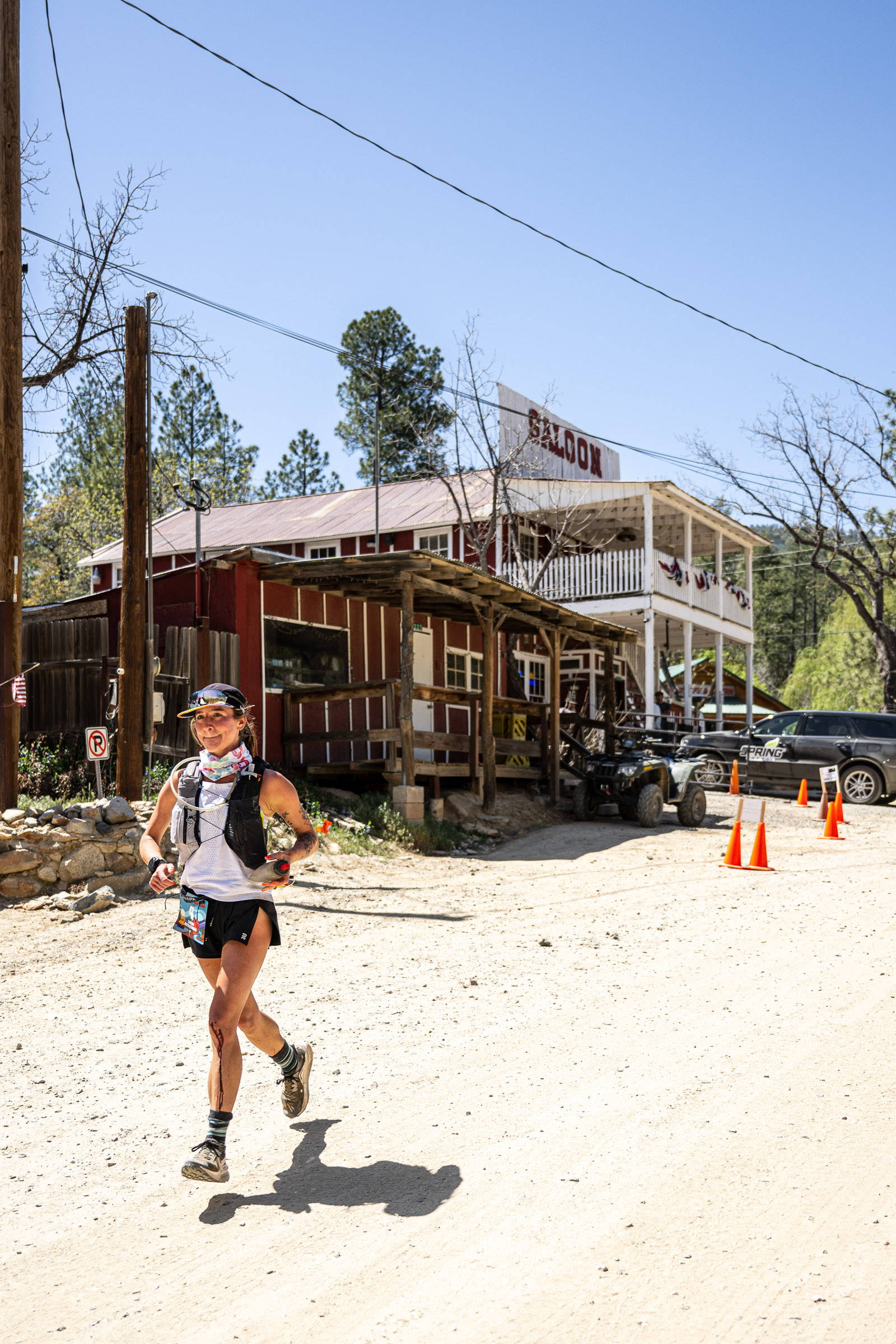
'But at a certain point, it doesn’t matter. Like, it wouldn’t matter if a mountain lion took me right now.'
So, no leopard in a hammock or anything?
[Laughter] No, I’m chasing that. I’m searching for that, but I haven’t found it yet.
I feel like there’s something supernatural about hallucinating stuff at night when you’re running 250 miles or whatever. There’s something spooky about it.
Yeah, night-time running is kinda like entering a portal: When sunrise comes around, you’re like, ‘What was I doing all night?’ It’s pretty wild.
Is it scary?
Cocodona isn’t super scary; there are mountain lions up here, and bears... I didn’t see anything on the course this year. The first year, my sister saw a mountain lion around dusk.
Wow.
But at a certain point, it doesn’t matter. Like, it wouldn’t matter if a mountain lion took me right now. [Laughter]
‘Please eat me. I’ve had enough.’
[Laughter] Yeah, you’re tired and you’re out of it, and it’s like, ‘Oh whatever, I could see a bear right now and not care.’
I love that.
There’s a race on the Mogollon Rim here in Arizona that is very eerie. I did that race a couple of years ago, and there’s a cabin loop up there, and it has a very eerie feeling at night. I swear there’s, like, witches—
Hell yeah, there’s witches.
It felt like Blair Witch Project running up there at night. So that was scary.
How do you prepare mentally for something like the Cocodona 250? Do you meditate?
I actually used to meditate a lot more and do more yoga, but now I think it helps to envision the finish line and how that might feel; I think that helps. It’s like, well, I’m not there yet, so I have to figure out how I can keep moving forward... I think you just have to resolve, like... I made the choice to do this, so I’m resolved to see it through. And I can hit however many low points along the way, but you just gotta keep moving. It’s not over yet, and I’ve just gotta finish this thing.
So, it’s all about attitude. You gotta have a good attitude.
Yeah, but then that doesn’t always work out. [Laughter]
Why?
Well, for me, I know that if I’m low on calories—objectively, I know this—if I’m low on calories, I kind of go into a spiral of self-loathing. [Laughter] But then I know if I eat more calories, I’ll be okay. Or maybe I just need a quick nap to reset. So, it’s things like that you have to be aware of in the moment so you don’t spiral.
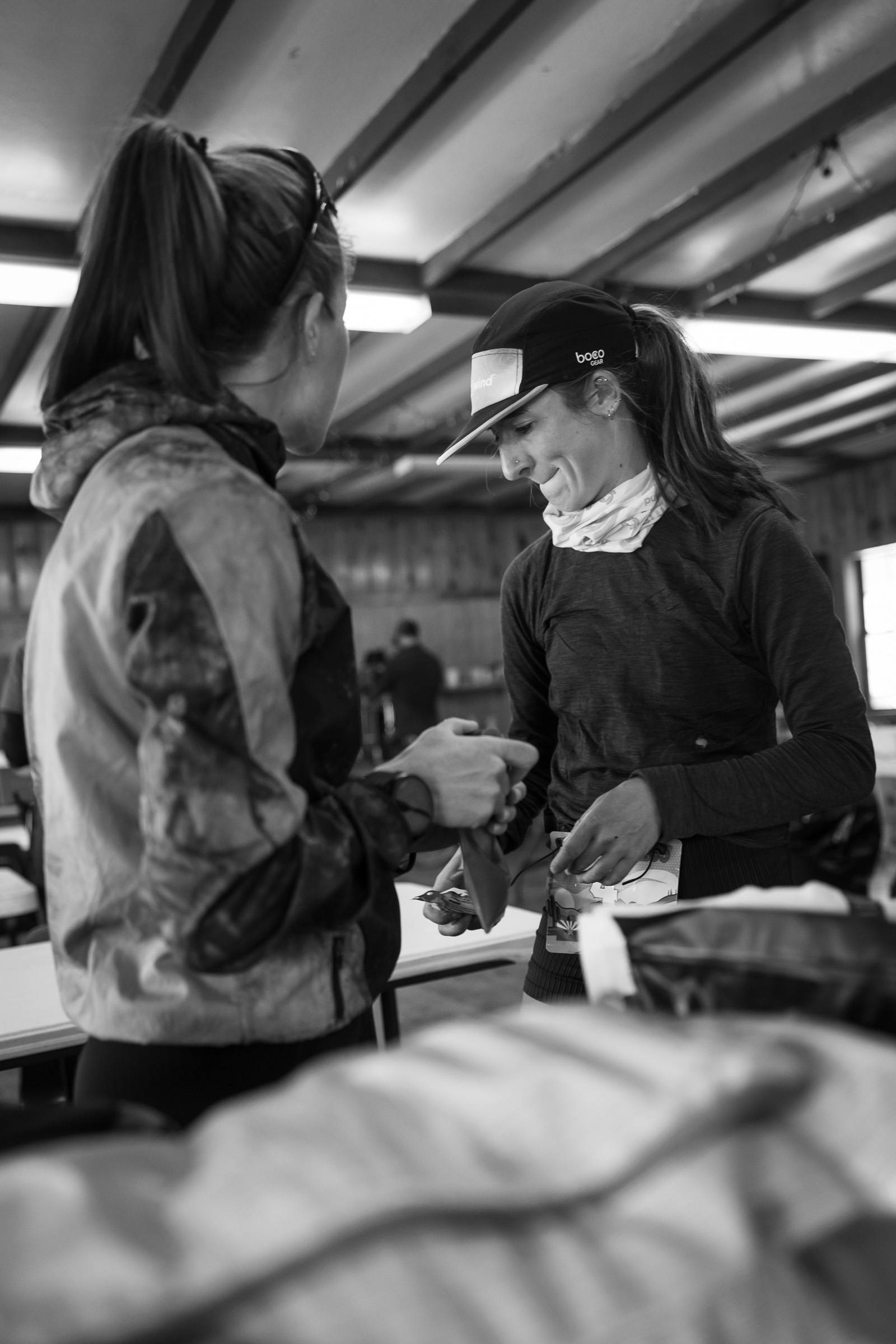
'Melissa and I can run together in silence and it’s fine, or we can vent a bit on the trail. It’s a lot of fun.'
You motioned your twin sister earlier—who is also an amazing athlete—and she paced for you at Cocodona?
Yeah, Melissa has been nice enough to come out and crew and pace at Cocodona all three years, which was a lot of fun because we know each other so well, so even without me giving her specific race strategy plans, she’ll know what needs to happen to keep me moving.
I guess because you’ve got virtually identical biological setups, right?
Yeah, or like pacing, too. Melissa and I can run together in silence and it’s fine, or we can vent a bit on the trail. It’s a lot of fun. It’s nice to know someone that well because you can just jive when you’re running together for hours and hours.
Yeah, yeah... And, of course, you guys aren’t cheating, right? You’re not swapping out the bib so one keeps running and the other takes a nap? You can tell me. It won’t go in the interview.
[Laughter] Everyone loves to ask that question!
Really?
Yeah, but we’re not even the kind of twins that did tricks on people in school, we just never—
Sarah! That’s the whole point of being twins! The tricks! You only do it for the tricks!
[Laughter] I know, I know. But we have not tried to trick anybody.
Can you guys please just start doing tricks? That’s like having a magic power and never using it.
[Laughter]
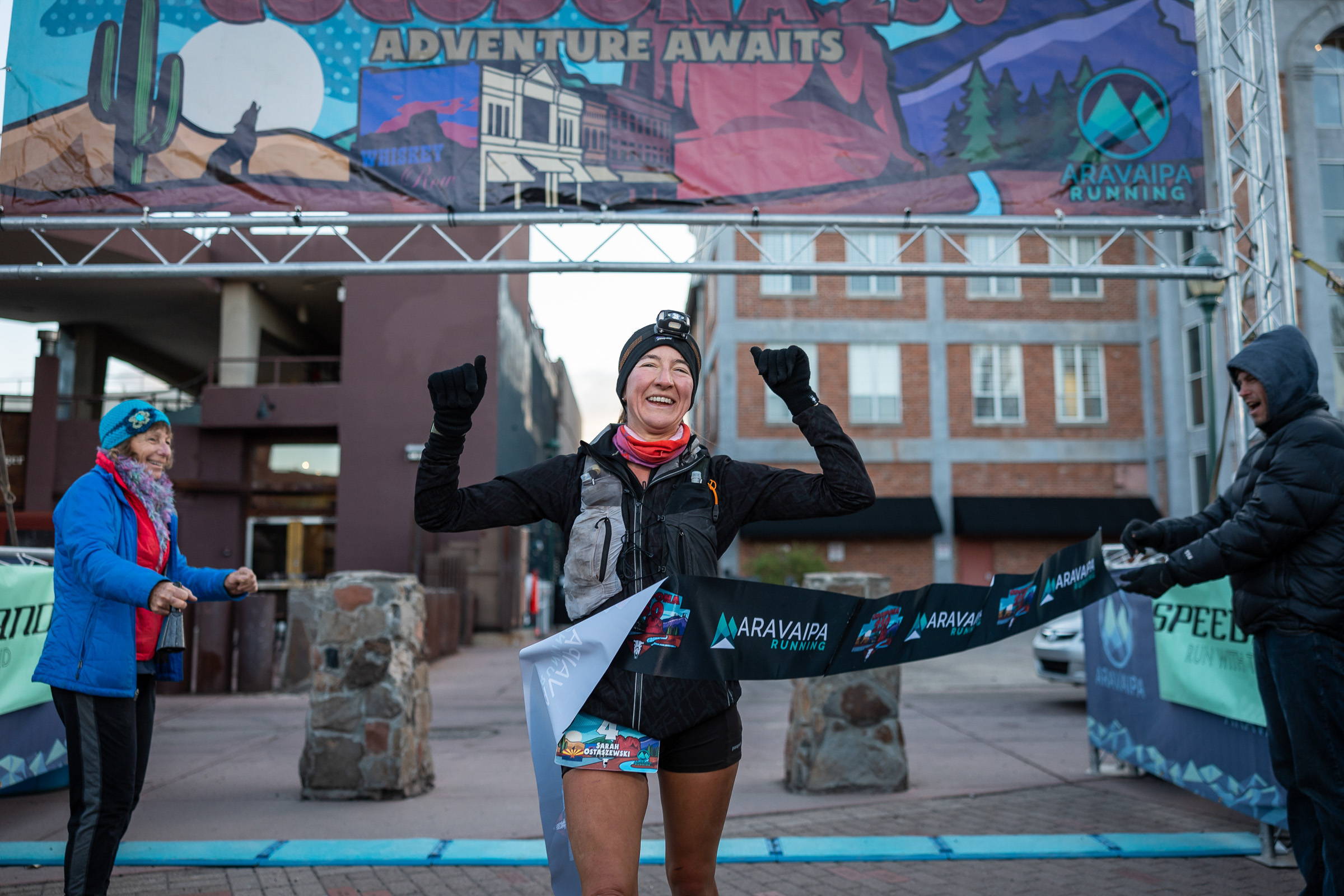
'I just passed out. I actually fell asleep in the bathtub. And then I jolted awake, finished cleaning up, and then fell asleep again on my bedroom floor.'
Okay, last question: was the high point of Cocodona this year crossing the finish line or something else?
It was great crossing the finish line, but people asked me, ‘How do you feel right now?’ And I just felt so numb, so tired. Obviously, I was happy, but I just felt so tired that it wasn’t really sinking in.
Right.
I think the real high point at Cocodona this year was at the last crew-accessible aid station: Walnut Canyon. It’s about 20 miles from the finish. So, I came into that aid station at around midnight or something; I came to this section with my pacer, and I was getting really sleepy, but the crew was so hyped up; they handed me a Red Bull, they restocked my pack, and told me about the conditions coming up; everyone was just so hyped and focused on helping me get to the finish line in first... It was probably the coolest moment in all of my racing so far because everyone was totally on my page for the goal that I had. And then I took off with my pacer, Kyle Curtin, who’s an amazing athlete—he’s also done some 200s—and that final stretch was just a blast. I mean, it was tough because I was sleepy and going through the third night, but that Walnut Canyon aid station was definitely a high point.
That’s awesome. What’s your next race?
Well, next year, I need to branch out and try a different 200 because my only experience is Cocodona. But a couple of weekends ago, I was pacing Sally McRae at the Moab 240, and being a participant and also seeing it from the outside made me realize, like, this really is crazy!
It is! It’s bananas.
Why are people doing this? To know that you’re signing up for something that’s going to take days, and that you’re going to be under pressure to move fast and efficiently—
For DAYS!
For days! Yeah, it’s crazy to see it from the outside.
So, you’re signing up for Moab next year?
I will put my name down for that one. I had a lot of fun out there, and the course is challenging. It’s a lottery, so I think I’ll put my name in and see if I can get in.
Okay, last-last question: what did you eat after winning Cocodona? I guess you can’t immediately start housing burritos and pizza.
My appetite the last couple of times has been messed up for one or two days after the race. You know you need to eat food and replenish, but I didn’t feel super-hungry immediately after the race. I think I just had black coffee, cleaned up, took a long nap, and then there’s a café in town called Tourist Home, and everybody knows they make the best breakfast burritos, so my crew and I all had breakfast burritos.
And then home to bed.
Yeah, I just passed out. I actually fell asleep in the bathtub. And then I jolted awake, finished cleaning up, and then fell asleep again on my bedroom floor. [Laughter]
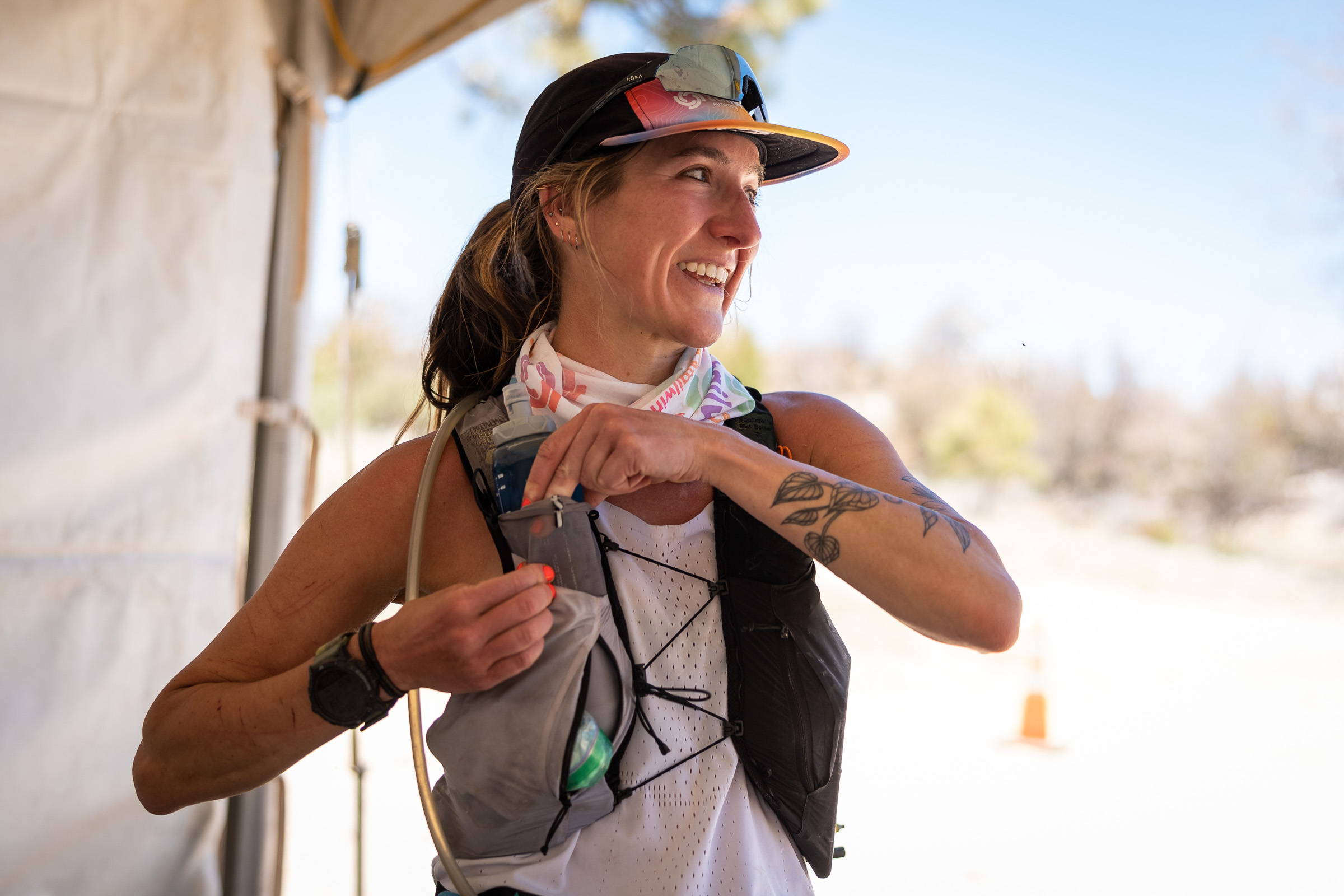
In This Issue

Notes from the Underground
Deleting Miles with Sarah Ostaszewski
READ
High Rotation
Max Jolliffe
READ
Get Possessed
Going the Distance
READ
The Knowledge
Jamil Coury & How To Direct an Ultra Race
READ
Welcome to Earth
What is Distance Training?
READ
Highway to Health
Shin Splints
READ
Phone it in
Jakob Åberg
READ
Eat it
How to Make Hell's Bells Gels®
READ
The Bullshit Report
Bad Knees
READ
Smoke Signals
Smoke Signals
READ
Your Running Stars

